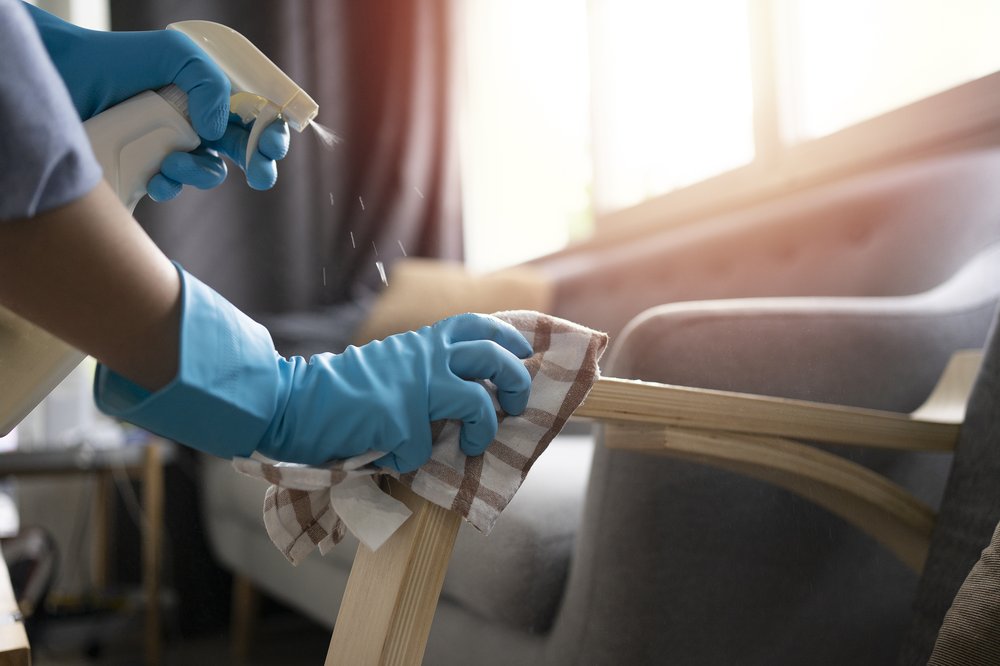NJ's house cleaners, other domestic workers to see $15.13 minimum wage, other protections
Jan. 12, 2024, 12:06 p.m.
Gov. Phil Murphy is expected to sign a first-ever 'bill of rights' for the workers Friday; traditionally domestic workers in New Jersey were denied many worker benefits and protections.

New Jersey's housecleaners, home caretakers and others will be guaranteed a minimum wage and other labor benefits and protections the state historically denied domestic workers, under legislation Gov. Phil Murphy signed Friday.
New Jersey will become the 11th state with a so-called Domestic Workers' Bill of Rights. It passed on Monday, the final day of the 2022-23 legislative session.
New Jersey's 50,000 domestic workers — including childcare providers, cleaners, and caregivers to seniors and people with disabilities — have previously been excluded from the state's minimum wage, currently at $15.13, as well as protections under New Jersey's Law Against Discrimination. The bill ends those exemptions. It also says employers must provide meal breaks and rest breaks, and require they enter into written contracts to document hours, wages and duties.
“Traditionally domestic workers have been carved out of many different labor benefits, and this bill reverses that,” said Britnee Timberlake, who sponsored the bill as an assemblywoman in the last legislative session. She became a state senator at the start of the 2024-25 session this week. “This is a workforce that has traditionally been unseen and unspoken for.”
She added that the state Legislature “practically provided unionized rights for the entire sector” with its bill.
For Timberlake, the granddaughter of a domestic worker, the legislation was personal.
Timberlake said her grandmother, Mary L. Whitley, grew up as a Black sharecropper in Durham, N.C. During the Great Migration, Whitley came north to Harlem seeking a better life. She lined up jobs and opportunities and then sent for her brothers and sisters to come to New York.
“She was the matriarch of so much, and the architect of our family success,” Timberlake said.
Whitley cleaned homes and worked as a baby nurse. She became sought-after because of her specialization in helping women postpartum after they gave birth, Timberlake said.
“She was on the clock basically 24/7 and when she would go on a job we wouldn't see her for months,” Timberlake said.
Timberlake said her grandmother taught her the skills of the trade; the legislator also worked as a domestic worker and a nanny during college.
“For me, her shoulders are what I stand on. And, that is what this bill was about for me. It was Mary L. Whitley, my grandmother,” Timberlake said.
The activist push around this legislation began in 2019, when a coalition of immigrants and workers' rights groups in the state organized along with the National Domestic Workers Alliance to explore the issue in depth in New Jersey. Jenifer Garcia Palaez, an organizer with the nonprofit New Labor, said that the coalition interviewed 400 domestic workers in the state.
“We found out the rates of wage theft that domestic workers go through, the health and safety consequences when cleaning with harsh chemicals, and other working conditions were not good,” she said in Spanish.
That survey work turned into a report from the Rutgers Center for Women and Work in 2020, finding 86% of the responding domestic workers said they were paid in cash, most without contracts. The report also found that 57% of responding New Jersey domestic workers said they had been subjected to wage theft.
In 2021, then-state Sen. Richard Codey, who retired this week after a half-century in the Legislature, introduced the first New Jersey domestic workers bill of rights, but that effort stalled out. Codey and Timberlake reintroduced the legislation in January, 2022.
Evelyn Saz, a former domestic worker who is now an organizer with the National Domestic Workers Alliance, said that she was at the statehouse when the bill passed. She said that many of her fellow domestic workers and organizers were crying during the vote.
“It was an incredible feeling. It was special for all of us,” she said in Spanish.
Saz said she came to New Jersey from El Salvador about seven years ago. She recounted good experiences and bad during her time in domestic work after she arrived.
She said that she and the last woman she worked for had a lot of fun together.
“Despite not being able to leave her chair, she liked to dance with me,” Saz said.
But one family she worked for was verbally abusive, Paz said. They would insist on calling her “Maria” even though it wasn’t her name, she said. She kept correcting them but she said they responded, “Everyone who comes in here is called Maria, so therefore, your name is Maria.”
Saz said the bill is the beginning of relief that will improve the livelihoods of domestic workers that have immigrated to New Jersey.
“The next step requires a lot of organization and collective work to make sure the bill is implemented,” she said.
Members of the coalition working with National Domestic Workers Alliance say the next step will be an aggressive education campaign to lawmakers, state officials and the domestic workers in the state so they ensure the law has an impact.
“The implementation work is going to be even harder to do with outreach for all the domestic workers out there, because if we don't do a good job with that. I think all the efforts that we did before are going to be worthless,” said Leticia Garcia of non-profit Lazos de América.
“That would mean that the law is just going to be a piece of paper,” she said.
New York, California, Massachusetts and Connecticut have passed similar legislation protecting their domestic workers.
This story has been updated to indicate Gov. Phil Murphy signed the Domestic Workers' Bill of Rights.
NJ taxpayers are footing a $20 million bill for temp workers’ health care, Rutgers report says